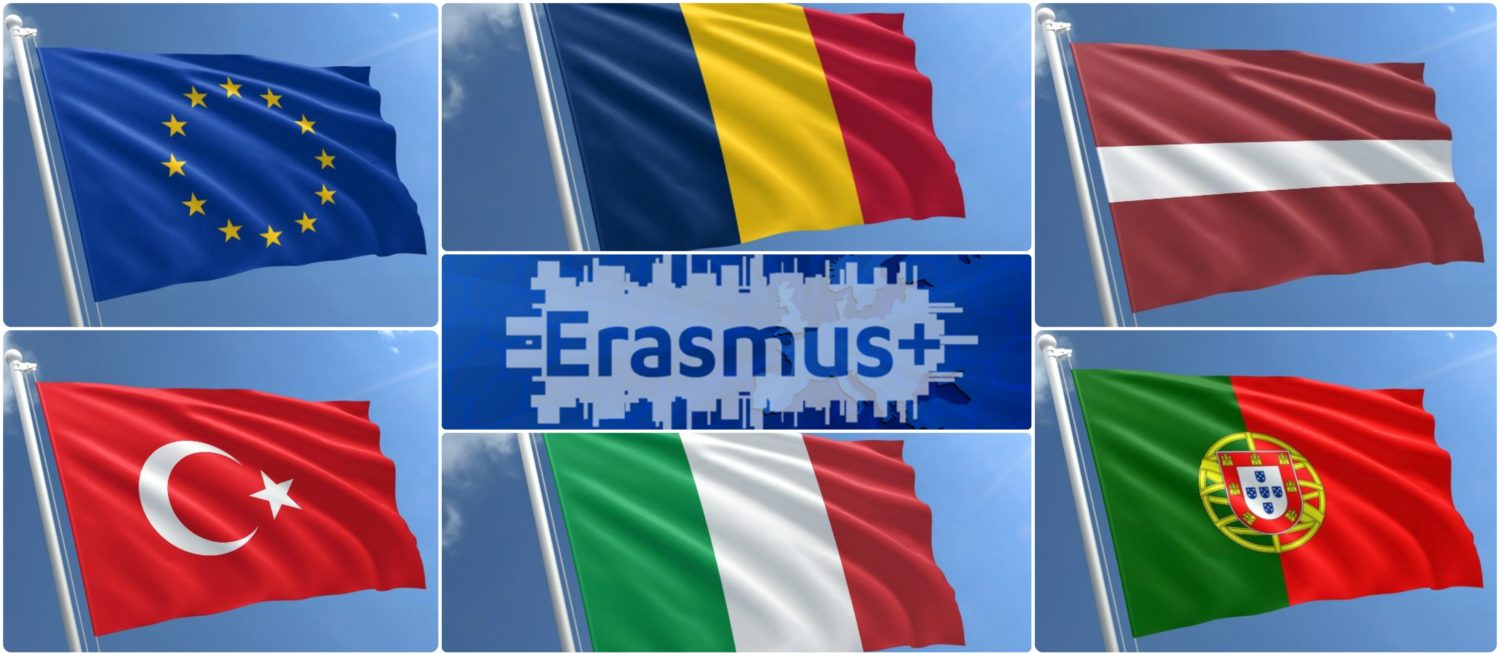Agrupamento de Escolas de Samora Correia is located in a suburban area, where agriculture is predominant. Over the last years, there has been an increase of population due to immigrants coming from Bulgaria, Romania, Moldavia, Ukraine, African countries and Brazil. The gypsy community is significant. The area benefits from its proximity of Lisbon, and easy access to social and cultural services. Nevertheless, many people don’t often take advantage of this proximity, and have no access to cultural and artistic events. This often results in social exclusion.
The school has 9 educational establishments, the Headquarters School, as well as the Basic School of Porto Alto. It also has 2 elementary schools, 2 basic schools and 2 kindergartens. Attending these educational establishments, we have 2,091 students, 142 pupils with Special Educational Needs (Autism, Asperger, other syndromes). We have 153 teachers in the first cycle. The rate of failure is still a matter of concern, with a figure of around 20%. Last year, 29 students did not finish due to lack of attendance.
The school has been developing a set of measures, namely: we are a bilingual school, pupils start learning English in the kindergarten, we have the European Section of French Language Program in the 7th and 8th year, we are implementing the Plan of Action for the Promotion of School Success and a Plan for the Improvement of Experimental Sciences. Two of our schools are reference schools at the level of Autism and Multideficiency, we have a Snoezlen room. We are also a pilot school of the Project of Autonomy and Curricular Flexibility. Our school has experience in working with students from multi-cultural background and ethnicities, as we have a community where immigrants are in high number. The teachers involved in in the Erasmus+ School Exchange Partnership “Hand to Hand – Together in Europe” have acquired practical knowledge thanks to their participation in Comenius projects and Erasmus+ Projects since 2008.
European cooperation is expected to develop students’ critical cultural awareness, as well as inter-cultural dialogue and competences. The contact in the European context should foster curiosity over other ways of living. We hope to channel pupils with bullying problems to constructive activities, and perceiving the world around us, and co-constructing more complex and richer identities.
